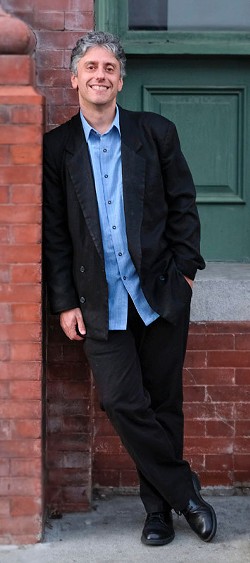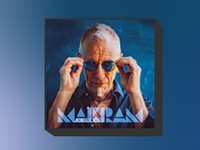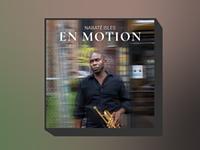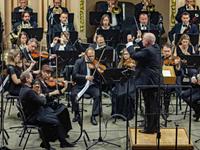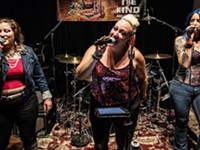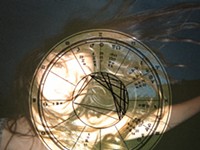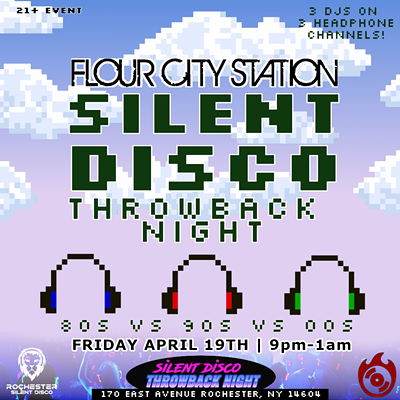[
{
"name": "500x250 Ad",
"insertPoint": "5",
"component": "15667920",
"parentWrapperClass": "",
"requiredCountToDisplay": "1"
}
]
He can play the role of tasteful accompanist with singers like Tessa Souter and Kurt Elling. He’s a straight-ahead bebop pianist when he plays with trumpeter Ralph Alessi or saxophonist John Ellis. He can rock the Hammond B-3 in an organ trio or enhance The Maria Schneider Orchestra with his accordion.
Gary Versace is Associate Professor of Jazz Studies and Contemporary Media at the Eastman School of Music but his roles on multiple instruments, in concert halls and on records, span the globe and several genres.
“I have loved Gary’s playing for many years,” says Schneider. “He has it all: charm, beauty, elegance, smarts and dazzle.”
Versace is one of the most in-demand musicians in jazz and beyond. In fact, he gets so much work recording in New York City, the Brighton resident keeps a small New Jersey apartment near the Lincoln Tunnel to Manhattan.
After almost two decades of constantly touring, Versace settled at Eastman in 2017 but he hasn’t slowed down. In the past few months he’s appeared on numerous records and released a piano trio album of his own.
Growing up in Cos Cob, in southwest Connecticut, Versace wanted one thing.
“I asked my dad if we could get a piano,” says Versace. “He brought home an accordion and said, ‘Here, this is even better; you can take it with you.’ I don’t think my parents could afford a piano.”
So, he learned accordion and played Italian folk songs at parties. But there was also a Hammond B-3 organ in his home, which his mother enjoyed playing. “They bought it at a mall and had no idea it would become a collector’s item, used in jazz,” says Versace.
His high school had a strong music program and a fellow student, jazz pianist Kevin Hays, became a life-long role model. In Greenwich Versace could catch a train to New York and hear giants like Art Blakey. And Connecticut happened to be a hot spot for jazz piano; Joey Calderazzo was playing locally and Brad Mehldau was just upstate.
“I just assumed everyone was a genius,” says Versace. “I heard all these guys play and thought wow, what is in the water here?”
But there was still no piano at home so Versace went to nearby SUNY Purchase to practice.
“I was working on a tune one day and the door opened and it was Bill Charlap,” says Versace. “He came in and spent 15 minutes with me working on a jazz song. He had no reason to do that. The fact that he spent that time with someone who was curious about music meant a lot to me. I like teaching now because it reminds me of that.”
After studying at the University of Connecticut, where there was no jazz major, Versace enrolled at Eastman’s master’s program in the early 1990’s to work with Professor Bill Dobbins, a jazz pianist.
“I thought, if I’m going to go to school, I’m going to a place where someone can tell me how to do this,” says Versace. “I felt like I needed a strong education. I really wanted to pick [Dobbins’] brain.”
After Eastman, Versace took a teaching job in Oregon, putting everything he had in the back of his station wagon. There was no room for his accordion so he sold it. He recalled being in a recording session years later and someone saying, “Man, it would be great if we had an accordion.”
“I said, ‘If you can find me one, I can play it,’” says Versace. “So, they did. At that point I realized that it was a sound people were appreciating again. I never imagined it would come back into my life in the way that it did. It’s become part of my voice.”
It’s a voice the Maria Schneider Orchestra has used on Grammy-winning albums like “Concert In The Garden” and “The Thompson Fields.”
“When I first met Gary, we sat down at a piano and had a ball sharing harmonic ideas,” says Schneider, “and I knew then he was a kindred spirit, that his love of music wasn’t bound by mechanics, but that musicality was everything for him, and that he loved to delve into harmony and everything he could, to lift that musicality to the highest level — to create magic. He’s beyond special, his gifts are indeed magical, and it’s a dream to have him play my music.”
Versace recently played accordion and keyboards on a Grammy-nominated album with singer Kate McGarry.
“It’s nice to be able to play almost nothing and have it be folky and beautiful,” says Versace. “It’s all about space. She sings jazz but she has these beautiful tunes where you don’t have to play too much. It’s a subtle conversation.
“I love space and beauty and melody in music and that’s her primary concern. That’s my chance to sit back, play a chord, and let it ring. You’re really just listening and trying to express something.”
McGarry says Versace has been an essential band member for 15 years, citing his soulfulness, nuance, passion, limitless creativity and desire for interaction.
“The statements he makes in his solos stay with me and inspire me every time I hear them to this day,” says McGarry. “He possesses outrageous chops but it’s tempered by his love of swing and his respect for the lineage of the art form. He’s never about the notes.”
“He’s immensely versatile. Piano, organ, keyboard, accordion, melodica — whatever instrument he picks up — he makes it sing and you feel his love and his personality. He’s the real deal.”
In 2009 Versace was tapped to play keyboards for a European tour with Madeleine Peyroux whose music he found to be very delicate.
“You really had to find the right part at the right time and really craft it,” says Versace. “I tried to not get in anyone else’s way. There was a lot going on in that band.” He also enjoyed getting to know Peyroux. “It was really amazing to talk to her about music. She knows so much.”
Schneider, McGarry and Peyroux are just a fraction of the artists enlisting Versace. Last April he joined guitarist Vic Juris on what turned out to be Juris’s final album, “Let’s Cool One.”
“He was a sweet, sweet man,” says Versace. “He was so underrated. All the musicians knew about him. He could be as modern or simple as you wanted him to be. I was honored to be on that session.”
Another new release, “Ambiguity,” was led by Dave Scott who Versace has played with for two decades.
“Dave’s interested in free playing, odd time signatures, and quirky harmonies,” says Versace. “It’s so open and there’s so many things to try. It’s almost like modern classical music with improvisation.”
John Hart’s “Act Three,” features Versace on the B-3 in a modern, swinging organ trio. “John is a guitarist who really understands the tradition but has a modern bent in his compositions, interesting phrasing, chords and improvisation. It’s just groovy and fun.”
And on “Other Matters” he played with saxophonist Rich Perry, one of Versace’s heroes. “He has such a beautiful sound. He wrote one chord, one bar melodies and then you just play so it’s completely open. This last one I think we really went to some interesting places.”
These projects couldn’t be more diverse but Versace fits them all.
“I’ve always liked the challenge of trying to play different kinds of music because I find them all inspiring,” says Versace. “Straight-ahead jazz is inspiring, Maria’s inspiring, the organ trio’s inspiring. My piano work is inspiring. It’s all a chance to learn. And when I get called for a particular project I delve into it as deeply as I can. I try to find my voice within that setting and offer everything I can to it.
The list goes on: guitarists John Scofield, Tom Guarna and John Abercrombie; drummers Al Foster, John Hollenbeck and Rudy Royston; saxophonists Lee Konitz, Dick Oatts and Tim Ries; trumpeter Ingrid Jensen and violinist Regina Carter. The calls keep coming.
Versace knows that he’s following a different path than pianists like Bill Evans or Tommy Flanagan who had signature styles.
“The style changed over the years but he always sounded like Bill Evans,” says Versace. “No one’s going to turn on the radio and recognize me because I’ve done so many different things and it changes with each project.
“To a lot of people that’s what makes a musician. I sometimes think I’ve failed in a sense that I didn’t achieve that, but I can’t go back and I can’t take away the love I have for a lot of different things. I can’t turn it off. If I were to play jazz piano in only one way, I would ultimately miss all the other things I was doing. Spacious Kate McGarry — I can’t play bebop on a Kate McGarry record, you have to play less.
“I really admire the people who do only one thing, honestly, and I wish it could be me but it’s not and I’ve made peace with it over the years.”
Versace may be known as the consummate sideman but his new piano trio album, “All For Now,” with Obed Calvaire on drums and Jay Anderson bass, showcases his own musical vision. It turns out to be on the more experimental side.
“When given the freedom to do what I want to do I enjoy having something a little bit quirky and avant-garde about it,” says Versace. “I want it to swing and be melodic in the jazz tradition. I like playing with harmony a lot. I like the interactive playing.
“We didn’t rehearse for that record. I just wrote sketches of the melodies. We did the whole thing in five hours, which is why I called it “All For Now.” Play it now and it’s over — that’s your shot.”
A friend, pianist Art Lande, told him: once you start playing the song it doesn’t matter who wrote it, it now becomes the band’s song.
“That’s my concept,” says Versace. “I bring it in, I start playing and let them do what they want. They inspire me to come up with things and we have a conversation. Every take is different. On ‘The Man I Love’ Obed put a different groove to it and off we went. I’ve never heard anyone play that song like that. That’s why I like playing with other people. I get inspired by what everyone else does.”
Although he is still recording, Versace is worried about the pandemic’s effect on music.
“I pray for the clubs,” says Versace. “If you only allow 25 percent of the people back, how long can they pay their rent with 25 percent of the covers? Can they even survive in the meantime doing zero percent? I hope we don’t lose all these people who are giving us a chance to play the music. That would be disastrous.”
He does, however, see a silver lining.
“I’ve been so busy teaching and traveling and recording I’ve had so little time to sit back and think about what I really want to achieve or what balance I want in my life. It’s been a chance to take my foot off the gas pedal for a bit and remember what I love about this and why it’s important.
“Not getting to see your friends and play on a regular basis — I think it’s going to remind everybody of the community that music is. No matter what we do, there’s a community of people who love improvised music. When it’s taken away and you don’t get to communicate with your friends and with an audience, I miss it. I look forward to it coming back and maybe we’ll appreciate it a little more.”
Ron Netsky is a freelance writer for CITY. Feedback on this article can be directed to [email protected].
Gary Versace is Associate Professor of Jazz Studies and Contemporary Media at the Eastman School of Music but his roles on multiple instruments, in concert halls and on records, span the globe and several genres.
“I have loved Gary’s playing for many years,” says Schneider. “He has it all: charm, beauty, elegance, smarts and dazzle.”
Versace is one of the most in-demand musicians in jazz and beyond. In fact, he gets so much work recording in New York City, the Brighton resident keeps a small New Jersey apartment near the Lincoln Tunnel to Manhattan.
After almost two decades of constantly touring, Versace settled at Eastman in 2017 but he hasn’t slowed down. In the past few months he’s appeared on numerous records and released a piano trio album of his own.
Growing up in Cos Cob, in southwest Connecticut, Versace wanted one thing.
“I asked my dad if we could get a piano,” says Versace. “He brought home an accordion and said, ‘Here, this is even better; you can take it with you.’ I don’t think my parents could afford a piano.”
So, he learned accordion and played Italian folk songs at parties. But there was also a Hammond B-3 organ in his home, which his mother enjoyed playing. “They bought it at a mall and had no idea it would become a collector’s item, used in jazz,” says Versace.
His high school had a strong music program and a fellow student, jazz pianist Kevin Hays, became a life-long role model. In Greenwich Versace could catch a train to New York and hear giants like Art Blakey. And Connecticut happened to be a hot spot for jazz piano; Joey Calderazzo was playing locally and Brad Mehldau was just upstate.
“I just assumed everyone was a genius,” says Versace. “I heard all these guys play and thought wow, what is in the water here?”
But there was still no piano at home so Versace went to nearby SUNY Purchase to practice.
“I was working on a tune one day and the door opened and it was Bill Charlap,” says Versace. “He came in and spent 15 minutes with me working on a jazz song. He had no reason to do that. The fact that he spent that time with someone who was curious about music meant a lot to me. I like teaching now because it reminds me of that.”
After studying at the University of Connecticut, where there was no jazz major, Versace enrolled at Eastman’s master’s program in the early 1990’s to work with Professor Bill Dobbins, a jazz pianist.
“I thought, if I’m going to go to school, I’m going to a place where someone can tell me how to do this,” says Versace. “I felt like I needed a strong education. I really wanted to pick [Dobbins’] brain.”
After Eastman, Versace took a teaching job in Oregon, putting everything he had in the back of his station wagon. There was no room for his accordion so he sold it. He recalled being in a recording session years later and someone saying, “Man, it would be great if we had an accordion.”
“I said, ‘If you can find me one, I can play it,’” says Versace. “So, they did. At that point I realized that it was a sound people were appreciating again. I never imagined it would come back into my life in the way that it did. It’s become part of my voice.”
It’s a voice the Maria Schneider Orchestra has used on Grammy-winning albums like “Concert In The Garden” and “The Thompson Fields.”
“When I first met Gary, we sat down at a piano and had a ball sharing harmonic ideas,” says Schneider, “and I knew then he was a kindred spirit, that his love of music wasn’t bound by mechanics, but that musicality was everything for him, and that he loved to delve into harmony and everything he could, to lift that musicality to the highest level — to create magic. He’s beyond special, his gifts are indeed magical, and it’s a dream to have him play my music.”
Versace recently played accordion and keyboards on a Grammy-nominated album with singer Kate McGarry.
“It’s nice to be able to play almost nothing and have it be folky and beautiful,” says Versace. “It’s all about space. She sings jazz but she has these beautiful tunes where you don’t have to play too much. It’s a subtle conversation.
“I love space and beauty and melody in music and that’s her primary concern. That’s my chance to sit back, play a chord, and let it ring. You’re really just listening and trying to express something.”
McGarry says Versace has been an essential band member for 15 years, citing his soulfulness, nuance, passion, limitless creativity and desire for interaction.
“The statements he makes in his solos stay with me and inspire me every time I hear them to this day,” says McGarry. “He possesses outrageous chops but it’s tempered by his love of swing and his respect for the lineage of the art form. He’s never about the notes.”
“He’s immensely versatile. Piano, organ, keyboard, accordion, melodica — whatever instrument he picks up — he makes it sing and you feel his love and his personality. He’s the real deal.”
In 2009 Versace was tapped to play keyboards for a European tour with Madeleine Peyroux whose music he found to be very delicate.
“You really had to find the right part at the right time and really craft it,” says Versace. “I tried to not get in anyone else’s way. There was a lot going on in that band.” He also enjoyed getting to know Peyroux. “It was really amazing to talk to her about music. She knows so much.”
Schneider, McGarry and Peyroux are just a fraction of the artists enlisting Versace. Last April he joined guitarist Vic Juris on what turned out to be Juris’s final album, “Let’s Cool One.”
“He was a sweet, sweet man,” says Versace. “He was so underrated. All the musicians knew about him. He could be as modern or simple as you wanted him to be. I was honored to be on that session.”
Another new release, “Ambiguity,” was led by Dave Scott who Versace has played with for two decades.
“Dave’s interested in free playing, odd time signatures, and quirky harmonies,” says Versace. “It’s so open and there’s so many things to try. It’s almost like modern classical music with improvisation.”
John Hart’s “Act Three,” features Versace on the B-3 in a modern, swinging organ trio. “John is a guitarist who really understands the tradition but has a modern bent in his compositions, interesting phrasing, chords and improvisation. It’s just groovy and fun.”
And on “Other Matters” he played with saxophonist Rich Perry, one of Versace’s heroes. “He has such a beautiful sound. He wrote one chord, one bar melodies and then you just play so it’s completely open. This last one I think we really went to some interesting places.”
These projects couldn’t be more diverse but Versace fits them all.
“I’ve always liked the challenge of trying to play different kinds of music because I find them all inspiring,” says Versace. “Straight-ahead jazz is inspiring, Maria’s inspiring, the organ trio’s inspiring. My piano work is inspiring. It’s all a chance to learn. And when I get called for a particular project I delve into it as deeply as I can. I try to find my voice within that setting and offer everything I can to it.
The list goes on: guitarists John Scofield, Tom Guarna and John Abercrombie; drummers Al Foster, John Hollenbeck and Rudy Royston; saxophonists Lee Konitz, Dick Oatts and Tim Ries; trumpeter Ingrid Jensen and violinist Regina Carter. The calls keep coming.
Versace knows that he’s following a different path than pianists like Bill Evans or Tommy Flanagan who had signature styles.
“The style changed over the years but he always sounded like Bill Evans,” says Versace. “No one’s going to turn on the radio and recognize me because I’ve done so many different things and it changes with each project.
“To a lot of people that’s what makes a musician. I sometimes think I’ve failed in a sense that I didn’t achieve that, but I can’t go back and I can’t take away the love I have for a lot of different things. I can’t turn it off. If I were to play jazz piano in only one way, I would ultimately miss all the other things I was doing. Spacious Kate McGarry — I can’t play bebop on a Kate McGarry record, you have to play less.
“I really admire the people who do only one thing, honestly, and I wish it could be me but it’s not and I’ve made peace with it over the years.”
Versace may be known as the consummate sideman but his new piano trio album, “All For Now,” with Obed Calvaire on drums and Jay Anderson bass, showcases his own musical vision. It turns out to be on the more experimental side.
“When given the freedom to do what I want to do I enjoy having something a little bit quirky and avant-garde about it,” says Versace. “I want it to swing and be melodic in the jazz tradition. I like playing with harmony a lot. I like the interactive playing.
“We didn’t rehearse for that record. I just wrote sketches of the melodies. We did the whole thing in five hours, which is why I called it “All For Now.” Play it now and it’s over — that’s your shot.”
A friend, pianist Art Lande, told him: once you start playing the song it doesn’t matter who wrote it, it now becomes the band’s song.
“That’s my concept,” says Versace. “I bring it in, I start playing and let them do what they want. They inspire me to come up with things and we have a conversation. Every take is different. On ‘The Man I Love’ Obed put a different groove to it and off we went. I’ve never heard anyone play that song like that. That’s why I like playing with other people. I get inspired by what everyone else does.”
Although he is still recording, Versace is worried about the pandemic’s effect on music.
“I pray for the clubs,” says Versace. “If you only allow 25 percent of the people back, how long can they pay their rent with 25 percent of the covers? Can they even survive in the meantime doing zero percent? I hope we don’t lose all these people who are giving us a chance to play the music. That would be disastrous.”
He does, however, see a silver lining.
“I’ve been so busy teaching and traveling and recording I’ve had so little time to sit back and think about what I really want to achieve or what balance I want in my life. It’s been a chance to take my foot off the gas pedal for a bit and remember what I love about this and why it’s important.
“Not getting to see your friends and play on a regular basis — I think it’s going to remind everybody of the community that music is. No matter what we do, there’s a community of people who love improvised music. When it’s taken away and you don’t get to communicate with your friends and with an audience, I miss it. I look forward to it coming back and maybe we’ll appreciate it a little more.”
Ron Netsky is a freelance writer for CITY. Feedback on this article can be directed to [email protected].
Speaking of...
Latest in Music Features
More by Ron Netsky
-
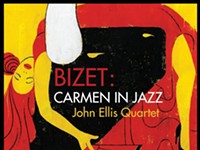
Album Review | 'Bizet: Carmen in Jazz'
Mar 26, 2024 -
'To Swing Is the Thing" by Mike Melito
Aug 10, 2023 - More »
